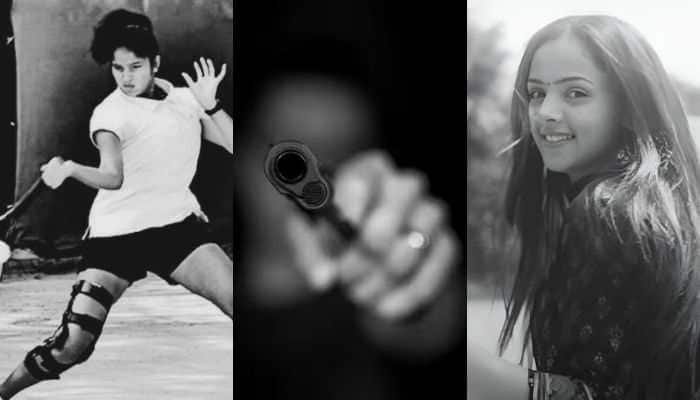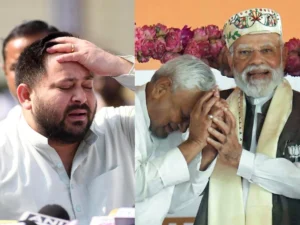The devastating story continues to shock communities across India. Family members share disturbing facts about the fatal shooting incident.
According to close family sources, the victim’s uncle revealed that Radhika’s mother occupied the exact floor where the tragic event occurred. This revelation adds another layer of horror to an already devastating situation.
The Disturbing Night of Violence
Your understanding of this crime deepens when considering the uncle’s detailed account. Family dynamics often create complex situations that outsiders struggle to comprehend fully.
The tennis player’s uncle spoke candidly about the events leading up to the shooting. According to his testimony, several family members lived in the house at the time of the incident. The proximity of the mother to the crime scene raises questions about what she might have witnessed.
Key Details from Family Testimony
Several important facts emerged from the uncle’s statement:
- The mother’s presence on the same floor during the shooting
- Multiple family members aware of ongoing domestic tensions
- Previous incidents that may have escalated the situation
- The victim’s efforts to maintain her tennis career despite family pressures
Depression and Humiliation: The Father’s Mental State
Mental health issues played a significant role in this tragic outcome. The father’s psychological state deteriorated over months before the incident occurred.
Family members describe a man struggling with deep depression and feelings of humiliation. These emotions created a toxic environment that ultimately led to violence against his own daughter.
The uncle’s account reveals that the father expressed shame about various aspects of his life. Financial pressures and social expectations weighed heavily on his mental health during recent years.
Understanding the Victim’s Life
Radhika Yadav lived her short life pursuing athletic excellence through tennis. Her dedication to the sport often conflicted with family expectations and traditional values.
The 25-year-old athlete faced constant pressure to abandon her tennis dreams. Family members wanted her to focus on marriage and traditional roles instead of sports.
Despite these challenges, Radhika maintained her training schedule and competed in various tournaments. Her determination to succeed professionally created tension within the household dynamics.
The Mother’s Traumatic Experience
Being present during such a horrific event leaves lasting psychological scars. The mother’s proximity to the shooting means she likely witnessed the entire incident.
Trauma specialists explain that witnessing violence against loved ones creates complex grief patterns. The mother must now process both the loss of her daughter and the actions of her husband.
Support systems become crucial for family members dealing with such devastating circumstances. Professional counseling and community support often prove essential for healing processes.
Community Response and Support
Local tennis communities expressed shock and grief over Radhika’s death. Many players and coaches knew her personally through tournaments and training sessions.
The Gurugram tennis community has organized memorial events to honor her memory. These gatherings serve both as tributes and support networks for grieving participants.
Ways the Community is Supporting the Family
- Memorial fund established for the victim’s family
- Counseling services offered to affected community members
- Tennis tournaments planned to honor Radhika’s memory
- Awareness campaigns about domestic violence prevention
Legal Proceedings and Investigation
Authorities continue investigating all aspects of this tragic crime. The uncle’s testimony provides crucial evidence for understanding the sequence of events.
Police interviews with family members reveal disturbing patterns of behavior. The investigation focuses on determining whether warning signs were missed or ignored.
Legal experts predict the case will highlight issues surrounding domestic violence and mental health. The father’s actions represent extreme consequences of untreated psychological problems.
Lessons for Families and Communities
This tragedy underscores the importance of recognizing mental health warning signs. Family members often notice behavioral changes before violence occurs.
Communication within families becomes essential when dealing with stress and depression. Open dialogue about mental health reduces stigma and encourages treatment seeking.
Sports families face unique pressures that require special attention. Balancing athletic ambitions with family expectations creates stress that needs professional guidance.
Moving Forward After Tragedy
The tennis community must find ways to honor Radhika’s memory while preventing similar tragedies. Education about domestic violence and mental health awareness becomes crucial.
Support systems for athletes dealing with family pressure need strengthening. Many young players face similar conflicts between personal dreams and family expectations.
Professional counseling services should become more accessible to families experiencing stress. Early intervention prevents situations from escalating to violence.
Final Thoughts
The uncle’s revelation about the mother’s presence during the shooting adds heartbreaking details to this already tragic story. Families across India must learn from this devastating loss.
Mental health awareness and domestic violence prevention programs require immediate attention. Communities must work together to create safe environments for young athletes.
Radhika’s memory serves as a reminder that dreams should never cost lives. Her story highlights the urgent need for better support systems within families and communities.








Be First to Comment